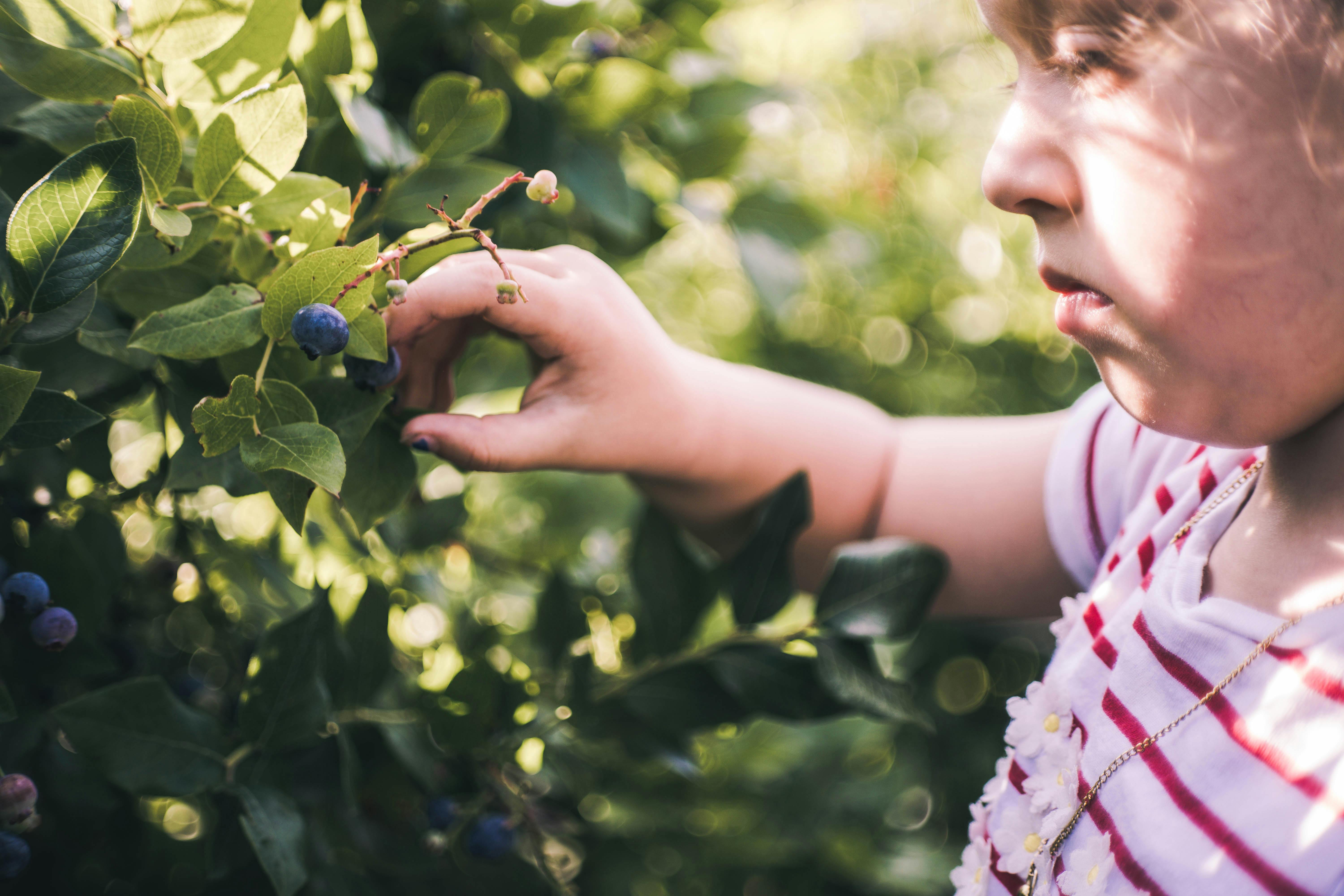Planting blueberries in Pennsylvania can be a rewarding experience for anyone who enjoys having fresh fruit on hand. Blueberries are an easy to care for crop that can produce many delicious fruits over the course of a growing season. Knowing when to plant blueberries in Pennsylvania is important for successful harvests. Generally, the best time to plant blueberries in Pennsylvania is in mid-spring when soil and air temperatures are warm enough for them to establish and grow well. Early spring planting can also be done, but requires more attention and care to ensure that frost does not damage the plants or kill buds developing on them.Growing blueberries in Pennsylvania is possible with the right conditions. Blueberries need a lot of sun, acidic soil (4.5 – 5.5 pH), good air circulation and steady moisture. Blueberries also prefer an organically rich soil, so adding compost to the soil when planting is recommended. Planting in raised beds will help with drainage and air circulation. Mulching with straw can help keep weeds down and maintain even moisture levels. Prune out old canes after harvest to encourage new growth, and fertilize in early spring with an acid fertilizer like ammonium sulfate or urea for best results.
The Best Climate for Planting Blueberries in PA
Pennsylvania provides a great climate for blueberry plants. The state has a temperate climate with cold winters and warm summers. This provides the perfect environment for growing blueberries. In addition, Pennsylvania typically receives plenty of rainfall, which is ideal for blueberry plants. The soil in Pennsylvania is also well suited to blueberry plants, as it is high in organic matter and nutrients.
When planting blueberries in Pennsylvania, it’s important to consider the time of year and the location of the planting site. Blueberry bushes should be planted in late winter or early spring when the soil has thawed and is moist but not wet. Planting too late may result in a decrease in yields or even crop failure due to the lack of time for developing fruit before winter sets in. It’s also important to choose a location that receives at least six hours of sunlight each day and has well-drained soil.
In order to ensure healthy plant growth and an abundant harvest, it’s important to provide adequate fertilization and irrigation for your blueberry bushes throughout the growing season. Applying fertilizer once or twice during the season will help keep your plants healthy and productive. Additionally, providing water regularly throughout the growing season will help keep your plants hydrated and promote growth.
Overall, Pennsylvania provides an excellent climate for growing blueberries, as long as proper care is taken when selecting a planting site and caring for your plants throughout the season. With proper care, you can expect an abundance of sweet, juicy berries each year!
Soil Type for Planting Blueberries in PA
When it comes to planting blueberries in Pennsylvania, soil type is an important factor to consider. The soil needs to be well-drained and acidic, with a pH between 4.5 and 5.5. The soil should also be rich in organic matter, such as compost or peat moss, which help the soil retain moisture and nutrients for the plants. If the soil lacks acidity, it can be amended with sulfur or iron sulfate to reduce the pH level. Additionally, it is important to use a raised bed or container when planting blueberries in Pennsylvania, as this will help ensure proper drainage and keep the roots of the plant from becoming waterlogged. Blueberries require regular irrigation during the growing season but should not remain soggy or overly wet.
When selecting a site for planting blueberries in Pennsylvania, make sure it is located in an area that receives full sun for at least six hours each day. Blueberry plants prefer cooler temperatures and well-drained soils; they are not tolerant of hot or humid climates and should not be planted near any bodies of water that could cause flooding or excess moisture. Additionally, blueberry plants need to be spaced apart appropriately; typically 2-4 feet apart for highbush varieties and 4-6 inches apart for half-high varieties. Finally, make sure to mulch around the plants after they are established; this will help conserve moisture and prevent weeds from taking over the bed or container.
Planting Time for Blueberries in PA
Planting time for blueberries in Pennsylvania is typically late winter or early spring. The best time to plant blueberry bushes is when the ground has thawed and temperatures are gradually increasing. Planting should ideally be done before the onset of new growth in spring. It is important to allow enough time for the plants to become established before the summer heat sets in.
When planting blueberries, it is important to select varieties that are suitable for your zone and soil type. The most common varieties grown in Pennsylvania are Northern highbush, Southern highbush, and Rabbiteye blueberry. Each variety has different requirements for soil pH, water, and sunlight. Additionally, it is important to space bushes correctly according to the variety planted and provide adequate drainage.
It is also important to prepare the soil before planting by tilling or digging a hole twice as wide as the root ball of the plant. Add organic matter such as composted manure or peat moss to enrich the soil and help retain moisture around the roots. After planting, it is also important to fertilize regularly with an acidic fertilizer specifically formulated for blueberries during their first year of growth.
Finally, irrigation is critical for successful establishment of blueberry plants in Pennsylvania’s climate conditions. It is essential that they receive 1-2 inches of water per week during their first growing season. After that, check weekly during periods of drought or excessive heat and adjust irrigation accordingly. With proper planting and care, your blueberry bushes will produce delicious fruit for years!
Best Time to Plant Blueberries in PA
Planting blueberries in Pennsylvania is a great way to enjoy fresh berries year-round. However, to ensure successful growth and fruiting of the blueberry bushes, it’s important to know when the best time for planting is. Knowing when to plant your blueberry bushes will help you get the most out of your crop and maximize your harvest.
The best time for planting blueberries in Pennsylvania is during the fall or winter months. Planting during this time allows the plants to become established before the hot summer months start and helps them bear fruit faster. The soil should be well prepared before planting with plenty of organic matter such as compost or manure added to ensure good drainage and aeration. Make sure that the area you are planting in has full sun exposure as this will help encourage healthy growth and development of your plants.
It’s also important to remember that blueberry bushes need acidic soil in order to thrive so be sure to add sulfur or other acidic amendments if necessary. You can also add mulch around your plants which will help keep moisture in and protect them from harsh winter temperatures. When it comes time for harvest, plan on picking ripe berries around mid-July through August depending on what variety you planted.
By taking the time to properly prepare your soil and choosing the right time for planting, you can ensure that your blueberry bushes will thrive in Pennsylvania’s climate conditions and provide you with an abundant harvest year after year.

Spacing and Depth When Planting Blueberries in PA
Planting blueberries in Pennsylvania requires careful consideration of spacing and depth. When planting, space the plants at least five feet apart, as this will allow them to reach their full potential. The soil should also be well-drained and slightly acidic, with a pH of 4.5 to 5.5. To ensure proper drainage, it is important to plant the blueberries at least eight inches deep in the soil. This will help ensure that the roots are able to access nutrients and moisture without becoming waterlogged or having too much air around them. Additionally, mulching around the plants can help conserve moisture levels in the soil and protect them from extreme temperatures. With proper spacing and depth during planting, you can ensure that your blueberry plants will thrive in Pennsylvania’s climate.
Providing the Proper Care and Maintenance for Blueberry Plants in PA
Blueberry plants are a great addition to any garden in Pennsylvania, as they are both beautiful and delicious. However, in order to ensure that your blueberry plants thrive, it is important to provide them with the proper care and maintenance. Doing so requires some knowledge of the plant’s needs and how to best meet them. This guide will help you understand how to provide the best care for your blueberry plants in Pennsylvania.
The first step in caring for your blueberry plants is to make sure they are getting the correct amount of sunlight. Blueberries need full sunlight for at least six hours a day, so make sure that when you plant them you select a spot that gets plenty of direct sunlight. If possible, choose an area that faces south or southwest so that your plants will get the maximum amount of sunlight each day.
It is also important to provide your blueberry plants with adequate amounts of water. Watering once a week should be sufficient in most cases, but if you live in an area that receives low amounts of rainfall, it may be necessary to water more often. Soil drainage is also essential for healthy blueberry plants as standing water can quickly lead to root rot and other issues. Make sure your soil has good drainage so that any excess water can easily escape.
Fertilizing is another important step in caring for your blueberry plants. Fertilizers should be applied twice a year – once during early spring and again during late summer – using a specialized fertilizer formulated specifically for berry-bearing shrubs. Make sure not to over-fertilize as this can damage the roots of the plant.
Finally, pruning is an essential part of maintaining healthy blueberry plants. Pruning should be done once a year after harvesting has finished in order to encourage new growth and promote fruit production. Be sure not to prune too much or too aggressively as this can stress out the plant or damage it irreparably.
By following these simple guidelines, you can ensure that your blueberry plants will stay healthy and bear plenty of delicious fruit each season!
Pruning and Harvesting of Blueberry Plants in PA
The pruning and harvesting of blueberry plants in Pennsylvania is an important part of the farming process. Pruning helps to promote healthy growth and encourages larger yields. Pruning also helps to control pests, reduce disease, and improve the appearance of the plants. Proper pruning techniques vary from cultivar to cultivar, but generally involve removing diseased or dead branches, thinning out dense growth, and removing any weak or crossing branches. The timing for pruning should be determined based on the variety being grown.
Harvesting blueberries in Pennsylvania can take place anytime from late-June through September depending on the variety being grown. Blueberries are ready to be harvested when they are firm, plump, and have a uniform dark blue color. Berries should be picked by hand as this results in fewer damaged berries than mechanical harvesting methods. Blueberries should be handled with care during harvest as they can easily become bruised or crushed. After harvesting, blueberries should be cooled promptly for optimal storage life.

Conclusion
Blueberry planting in Pennsylvania is an excellent way to bring fresh, healthy fruit into your home. The best time to plant blueberries in Pennsylvania is between late April and mid-May, when the soil is warm and moist enough for successful establishment. Planting in a raised bed can improve the soil’s drainage and fertility, which will help maximize yields. Blueberries require acidic soil with a pH of 4.5-5.5, so make sure to test your soil’s pH before planting. Additionally, adding compost or peat moss can help keep the pH balanced and prevent nutrient deficiencies. Planting several varieties of blueberries can extend your harvest season and increase the yield of your crop. Finally, make sure to provide ample water and fertilizer throughout the growing season for a bountiful harvest of delicious blueberries.
In conclusion, if you’re looking for a rewarding and delicious addition to your garden, consider planting blueberries in Pennsylvania! With proper preparation of the soil, adequate water and fertilizer, and multiple varieties of plants, you’ll be sure to enjoy a sweet harvest this summer!



